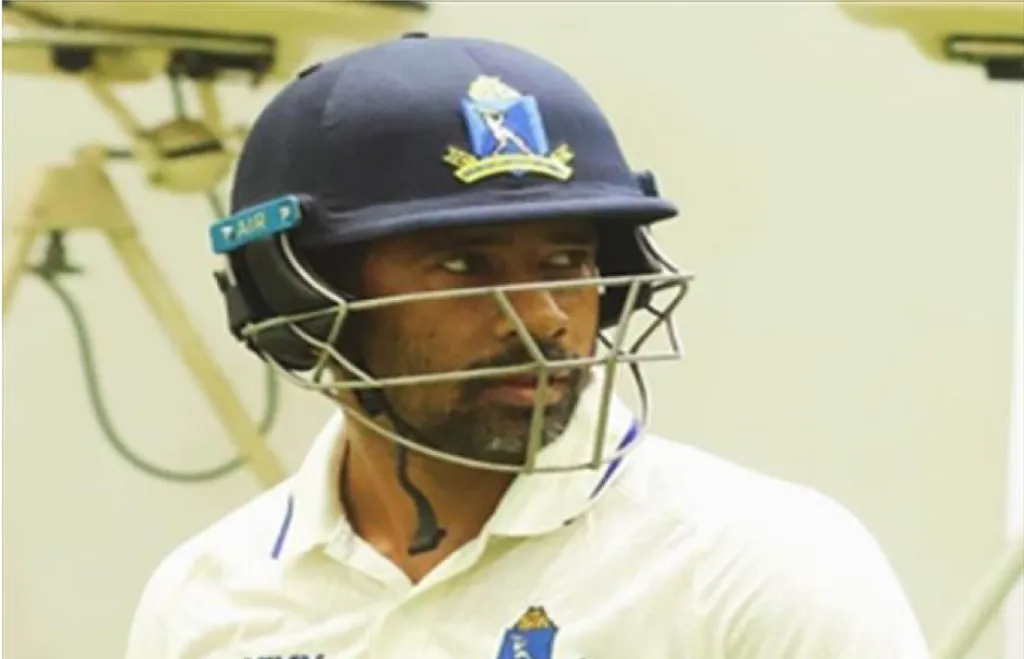Wriddhiman Saha, a prominent figure in Indian cricket, recently experienced a significant shift in his career trajectory. Initially, Saha had resolved to retire from the game when he visited Eden Gardens this past June. However, a pivotal conversation with Sourav Ganguly, the revered former captain of the Indian cricket team, reignited his passion for the sport and altered Saha’s retirement plans. Ganguly's encouragement played a crucial role in persuading Saha to continue his career with Bengal, thus allowing him the opportunity to conclude his tenure as a player with his home state.
Having suffered various injuries and enduring rigorous rehabilitation, Saha remained steadfast in his commitment to participate in one more season of professional cricket. His decision to return was driven by an emotional connection to his roots and the influence of both his wife and Ganguly. Saha acknowledged the mental strain associated with fully engaging with the demands of the game, yet he ultimately chose to focus on playing the Ranji Trophy, the most prestigious domestic competition in India. He has voluntarily opted out of the white-ball formats, knowing that he lacks the physical capacity to sustain a complete season across all formats of the game.
Saha's decision to scale back his commitments stems from a desire to facilitate the growth of younger players in the domestic circuit, particularly those vying for the wicketkeeping spot. His transition from playing to mentoring has already begun to bear fruit, as exemplified by the rise of Abishek Porel, who has garnered immense attention and has been retained by the Delhi Capitals owing to his impressive performances across formats. For Saha, contributing to the development of the next generation of wicketkeepers serves as validation of his enduring influence in Indian cricket.
Saha is well-aware of the challenges that lie ahead. While he remains optimistic about Bengal's prospects in the Ranji Trophy, he has also resigned himself to the fact that this could be his final season. He expressed a clear intent to retire at Eden Gardens unless the team progresses to the later stages of the tournament, in which case he would continue until the season concludes.
The wicketkeeper reflected on the external influences that prompted his decision to delay retirement. Saha categorized the thought of retiring as relatively unchallenging, as he had initially accepted that he would not play this season. Nonetheless, the support from his wife and Ganguly was enough to sway him into returning to the pitch one last time. As he assesses his career, Saha remains proud of his contributions to Indian cricket. He humbly acknowledges the ironies of playing at a time dominated by exceptional players like MS Dhoni and Rishabh Pant. Despite the competitive landscape, he does not harbor feelings of bad luck or missed opportunities; instead, he expresses gratitude for the ability to represent India in 40 Test matches.
Saha's statistical achievements include a total of 1,353 runs in 56 innings with a batting average of 29.41, along with three centuries and six half-centuries. One of his standout performances occurred during a home series against New Zealand in 2016, where he secured crucial runs in both innings, helping his team to a memorable victory. Although he occasionally reflects on what more he might have accomplished with the bat, he emphasizes that his primary focus has consistently been on excelling behind the stumps.
From the outset of his career, Saha receptively identified himself as a wicketkeeper first, striving to make a name for himself in a highly competitive environment filled with illustrious batsmen. His formative years were shaped by mentorship from distinguished names like Kiran More, Saba Karim, and Deep Dasgupta. Interactions with legends such as Dhoni, along with dialogues with international icons like Adam Gilchrist and Ian Healy, further enriched Saha's cricketing acumen. Today, he is eager to impart his knowledge to aspiring wicketkeepers. He engages with young talents, including players from the women's cricket team and even reaching out to current wicketkeepers like Rishabh Pant for collaborative learning experiences.
As Saha considers his impending transition, he remains open to coaching and mentoring opportunities, expressing that his first preference will be to contribute to Bengal cricket. While he acknowledges that he has not solidified his career plans post-retirement, he is enthusiastic about sharing the insights he has garnered throughout his extensive career. Additionally, he has already begun this journey by participating in cricket academies that focus on nurturing future talent.
Reflecting on his journey, Saha can fondly recount a career that has brought him significant pride, despite navigating challenges and adjustments along the way. He recounts the moments when he received feedback from then-coach Rahul Dravid, leading him to understand that the Indian team was moving on from him. Rather than being deterred, Saha embraced opportunities in domestic cricket, recognizing that his love for the game ultimately drives his participation. Drawing from his experiences, he has engaged in rigorous competition in recent years, instilling valuable lessons and insights into his gameplay and approach.
Looking ahead, Saha is optimistic about completing this season on a high note, with aspirations of leading Bengal to the Ranji Trophy final. Regardless of the outcome, he has already begun contemplating his next chapter—balancing family life and possibly delving into coaching. With gratitude and optimism, he is ready to embrace whatever lies ahead after hanging up his gloves.

